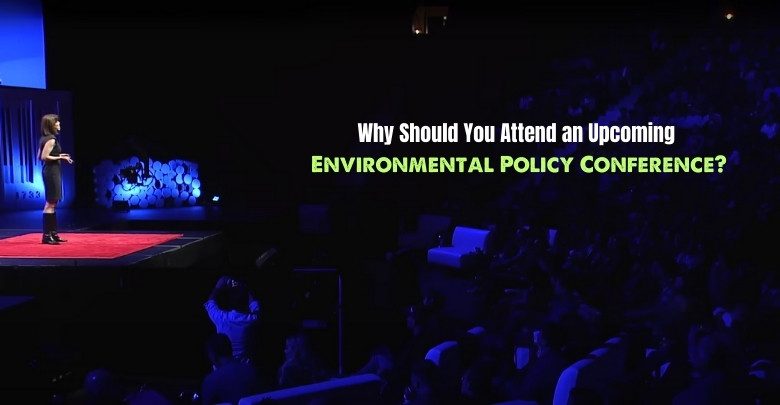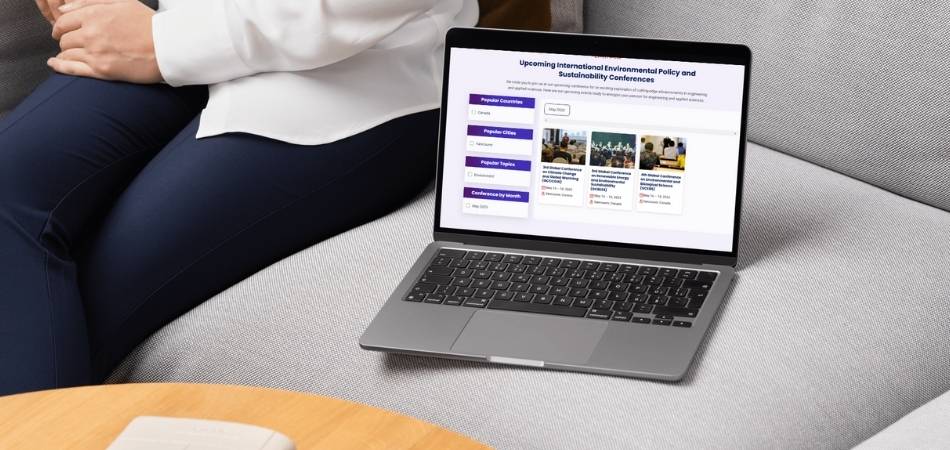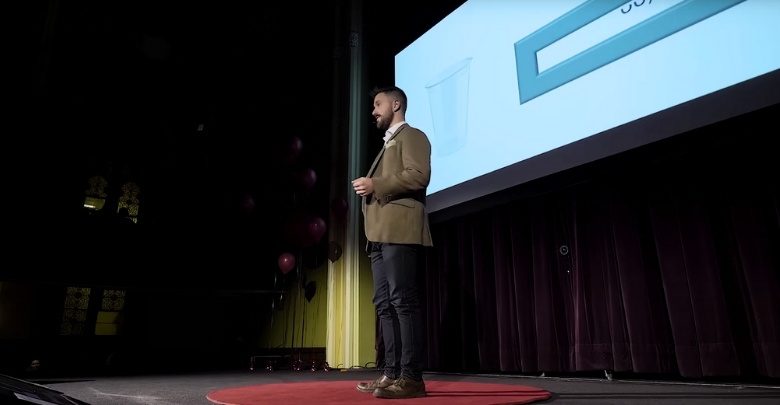To discuss important environmental issues and solutions, professionals, specialists, and activists meet at environmental policy conferences. If you’re interested in attending one, you might be wondering: How do I find an upcoming environmental policy conference to attend? Finding the right event is easier than you think.
To find an upcoming environmental policy conference, explore dedicated event websites, social media, and university event pages. Sign up for newsletters from environmental organizations or consult platforms like Global Conference Alliance Inc. Networking with colleagues and staying informed through industry news can also uncover valuable opportunities suited to your interests.
Are you eager to learn more about upcoming environmental policy conferences? Continue reading this article—you’ll find every essential detail to guide you in discovering the perfect event to attend and make the most of your experience.
Why Should You Attend an Upcoming Environmental Policy Conference?
Taking part in an environmental policy conference allows you to connect with experts in the field. You will meet policymakers, researchers, and advocates who can provide insights into the latest trends and challenges. Networking at these events can open doors for future collaborations and opportunities.
These conferences offer a platform for learning about global environmental issues and innovative solutions. Experts present on topics like climate change, sustainability, and renewable energy. Engaging in discussions helps attendees stay updated on environmental challenges and the policies that will affect the future of our planet.
At the conference, you can participate in various workshops and panels. These sessions allow you to dive deep into specialized topics and ask questions. It’s an excellent opportunity to gain new knowledge and share your thoughts with like-minded individuals and experts in the field.
If you’re planning to attend an upcoming environmental policy conference in Canada, it will provide a great opportunity to explore specific regional issues. Canada’s role in global environmental efforts, such as conservation and climate policy, will be highlighted. This experience allows you to gain firsthand knowledge of these pressing matters from local and international perspectives.
How Do I Find an Upcoming Environmental Policy Conference to Attend?
Participating in an environmental policy conference is a great way to stay informed and network with like-minded professionals. These events bring together experts, activists, and policymakers to discuss pressing environmental issues. Here’s how to find upcoming conferences to attend:
Follow Key Environmental Organizations
Environmental organizations host a variety of policy conferences throughout the year. By following these groups online or signing up for newsletters, you can stay updated on upcoming events. Many organizations post event details on their websites or social media platforms, offering direct registration and information about event speakers and schedules.
Use Social Media to Stay Informed
Social media platforms are a great way to find environmental policy conferences. By following relevant hashtags and pages, you can get information about upcoming events. Engaging with environmental influencers and groups can keep you informed about conferences and webinars focused on sustainability, climate change, and policy discussions.
Check University and Academic Institutions
Many universities and academic institutions host events on environmental policy topics. You can visit their event pages to find out about conferences, workshops, and symposiums. Universities often collaborate with experts to organize events, providing a platform for in-depth discussions and research presentations on key environmental issues.
Attend Webinars and Virtual Conferences
Virtual conferences are a convenient way to attend events from anywhere. Many environmental policy events have online formats, offering the same speakers and sessions as in-person events. You can find these virtual conferences through event websites or social media, with registration details and links shared in advance.
Research Conference Databases and Websites
Using conference databases and event websites is an effective way to find upcoming environmental policy events. These platforms regularly update their listings and allow you to filter by topic or location. You can also find important event details such as registration, schedules, and even virtual options for attendance.
Consult With Industry Leaders and Influencers
Networking with industry leaders in the environmental space can help you discover valuable conference opportunities. These influencers often share information about upcoming events they are participating in or endorsing. Following their work and subscribing to their channels or newsletters can help you stay up-to-date on significant environmental policy gatherings.
Subscribe to Environmental Policy Newsletters
Environmental policy newsletters are a great way to stay informed about upcoming events. These newsletters often include event listings, details on speakers, and registration links. Signing up for newsletters from environmental advocacy groups or academic institutions ensures you receive timely updates about relevant conferences, workshops, and seminars.
Network With Colleagues in Your Field
A great way to find conference opportunities is to network with those in the environmental policy community. Your colleagues and professional connections may know of upcoming events that could benefit you. By engaging in conversations and sharing event information, you can stay connected to the latest environmental policy trends and events.
Explore Event Platforms and Apps
Event platforms list numerous conferences and workshops. These apps provide an easy way to find environmental policy events. You can search by location, topic, and event type, helping you discover conferences you may otherwise miss. Many platforms also offer easy registration options and event reminders.
By combining these strategies, you can stay up to date on upcoming environmental policy conferences. Each method provides unique ways to discover new events that match your interests and professional goals.
Key Factors to Consider When Looking for Upcoming Environmental Policy Conference
Looking for the right environmental policy conference is essential for making the most of your time and investment. These events provide valuable insights and connections, so consider several key factors when choosing the best one to attend.
Event Focus and Topics
Knowing the main themes of a conference is essential to ensure it aligns with your professional or academic interests. Topics like climate policy, sustainability, or environmental law may be discussed. By attending the right conference, you can gain valuable knowledge that directly applies to your field of work or study.
Location and Accessibility
The conference location plays a significant role in your overall experience. Consider how easy it is to travel to and from the venue, including options for public transportation. Also, think about accommodation options, amenities, and the surrounding area, which may offer additional networking opportunities or relaxation during breaks.
Speakers and Networking Opportunities
A conference’s success depends on the speakers and opportunities for networking. High-quality speakers bring diverse perspectives, while networking allows you to build professional relationships. Attending events where industry leaders share insights and encourage discussion will improve your knowledge and possibly lead to future collaborations in environmental policy.
Cost and Budget Planning
One of the first factors to assess when looking for a conference is the overall cost, especially if you’re planning to attend Canadian events. In that case, consider the cost to attend an environmental policy conference in Canada, which includes registration fees, travel, accommodation, and meals. Budget planning ensures you can attend without financial strain, and some events offer early bird discounts or group rates that help lower costs.
Duration and Schedule
The length of the event can determine how much content you can absorb. Longer conferences typically offer more in-depth discussions and a wider variety of sessions. Shorter events may focus on specific topics, allowing for more condensed learning. Carefully review the schedule to see if it fits within your personal or professional calendar.
Making an informed decision helps you maximize your experience at environmental policy conferences. Consider these factors carefully to ensure you choose an event that aligns with your goals and interests. Proper planning ensures a productive and meaningful experience.
Are There Free Environmental Policy Conferences to Attend?
Yes, there are free environmental policy conferences you can attend. Many organizations, universities, and government bodies offer events at no cost to facilitate broader participation in important environmental discussions. These events provide access to essential discussions and learning opportunities for everyone. Here’s how to uncover free options:
Look for Community-Hosted Events
Environmental policies and initiatives are frequently the subject of free conferences or forums hosted by local community organizations. These events aim to promote public awareness, making them accessible to a wider audience. Community centers, libraries, and grassroots organizations frequently serve as hosts, offering valuable opportunities to learn and collaborate on local environmental efforts.
Explore Public Sector Initiatives
Government agencies and departments frequently organize free conferences to engage citizens on environmental policy matters. These events often include workshops, public consultations, and informative sessions that highlight pressing ecological concerns. Publicly funded events typically feature experienced speakers and policymakers, making them valuable for understanding environmental challenges and potential solutions.
Search for Nonprofit Organization Programs
Nonprofit organizations dedicated to environmental causes often host free conferences to encourage participation and advocacy. These organizations focus on inclusivity, ensuring attendees gain valuable knowledge without financial limitations. Nonprofits may offer networking opportunities, panel discussions, and expert insights to improve engagement on essential topics like climate change, conservation, and policy-making.
Join Educational Outreach Programs
Educational outreach initiatives sometimes include free conferences aimed at promoting environmental awareness and sustainability education. Schools, research institutions, and science organizations organize these events to promote learning among students and community members. Such programs often feature workshops, speaker series, and interactive activities that encourage active participation and deeper knowledge of environmental policies.
Take Volunteer Opportunities
Volunteering at environmental policy conferences can often grant free access to sessions and events. Many conferences require volunteers to assist with logistics, registration, or event setup, offering them complimentary entry as a reward. These opportunities not only save costs but also provide hands-on experience and chances to interact with professionals in the field.
Free environmental policy conferences offer valuable learning and networking opportunities. By exploring community-hosted events, government initiatives, nonprofit programs, educational outreach, or volunteer options, you can gain insight into environmental issues without financial barriers.
Best Websites for Finding Environmental Policy Conferences
To remain current in the field, you should choose the appropriate conference platform. Various websites provide detailed information about upcoming events. These platforms offer valuable resources to help you plan your participation. Here are some useful websites to explore for your next conference:
Global Conference Alliance
The Global Conference Alliance Inc. is a great platform for discovering international environmental policy conference. It provides a wide range of events hosted globally. Users can find detailed listings of upcoming events in various environmental sectors. The site also features essential information about deadlines, locations, and registration details, ensuring a continuous experience.
Environmental Online
Conferences and sustainability-related events are the focus of Environmental Online. This site is easy to manage and offers a wide range of options. You can search by date, location, or specific environmental issues. It provides comprehensive details on event topics, speakers, and registration instructions to help users plan effectively.
Eventbrite
One well-known resource for locating conferences and events in a variety of fields is Eventbrite. The site offers easy access to listings, filtering options, and registration features. Users can browse events by location, topic, and date. Eventbrite makes it simple to explore different types of events worldwide.
Climate Conferences
A website dedicated to climate change and environmental meetings is called Climate Conferences. It lists workshops, webinars, and various events related to climate action. The website allows users to filter events based on region, topic, and type of event. It is a valuable resource for anyone interested in climate-focused discussions.
Green Conferences
The mission of Green Conferences is to disseminate information about environmental events and sustainability. It regularly updates listings and allows users to search for events that meet their needs. Whether you are looking for gatherings on renewable energy, environmental law, or climate change, Green Conferences offers the right platform for your search.
Exploring these platforms will help you find a variety of environmental events. Whether you are interested in global or regional gatherings, these websites provide great resources to help you stay informed. They ensure you don’t miss out on valuable opportunities to expand your knowledge and network.
Are Virtual Environmental Policy Conferences Right for You?
A flexible way to participate in international debates on sustainability and climate change is through virtual environmental policy conferences. These events allow you to attend from anywhere, providing an accessible platform for learning and networking. Here’s how to decide if they’re right for you:
Convenience and Flexibility
One of the biggest advantages of virtual conferences is the convenience they offer. You can attend these events from anywhere, saving time and money on travel. Virtual platforms often allow you to access sessions on-demand, meaning you don’t have to worry about missing any important discussions.
Cost-Effective Participation
Virtual conferences typically cost less than in-person events, as there are no travel, accommodation, or venue fees. This makes it easier for people with budget constraints to participate in high-quality events. Many virtual events also offer free or discounted rates, making them more accessible to a wider audience.
Networking Opportunities
While virtual events may lack face-to-face interaction, they still offer exceptional networking opportunities. Many platforms include chat rooms, virtual meetups, and discussion boards where attendees can connect. This digital networking helps you engage with experts, peers, and like-minded individuals without the limitations of physical space.
Access to Global Experts
Taking part in virtual conferences allows you to hear from experts and speakers from around the world. Online platforms make it easier for top professionals to share their knowledge, as they are not restricted by geographic boundaries. This visibility provides a chance to learn from a diverse range of perspectives and experiences.
Technical Challenges and Accessibility
While virtual conferences offer many benefits, they can present technical challenges, especially for those not comfortable with digital tools. Issues like internet connectivity or unfamiliar software may hinder participation. However, most platforms offer tutorials and support to assist attendees in navigating these challenges, ensuring a smooth experience.
Virtual environmental policy conferences can offer an efficient and accessible way to engage with global environmental topics. Consider the convenience, cost-effectiveness, and networking opportunities when deciding if these events are a good fit for your professional development.
How to Plan Your Schedule Around an Upcoming Environmental Policy Conference?
Planning your schedule around an environmental policy conference can help ensure you make the most of the event. By organizing your time in advance, you can fully participate and network. Follow these steps to prepare efficiently for your upcoming conference..
Step 1. Review the Conference Agenda
Start by reviewing the conference agenda thoroughly as soon as it’s available. Look for sessions, workshops, or speakers that are most relevant to your professional or personal interests. Identifying key events early will help you prioritize your time and ensure you don’t miss essential discussions or presentations.
Step 2. Block Time for Travel and Setup
Allocate time for travel and setup, whether the event is virtual or in person. For virtual events, schedule time to log in, test your technology, and prepare. If attending in person, consider the time needed for travel, registration, and finding your seat to avoid unnecessary stress before sessions begin.
Step 3. Coordinate With Work or Personal Commitments
Balance your work or personal commitments with the conference schedule. Reschedule meetings, appointments, or tasks that might interfere with attending key sessions. Delegating responsibilities or setting clear expectations with others will help minimize distractions and ensure you can focus on the conference without added stress or interruptions.
Step 4. Plan for Networking Opportunities
Make time to attend networking events, whether virtual or in person. Conferences often offer sessions dedicated to meeting peers and experts. Networking helps you build relationships and gain insights that can benefit your career or research, so prioritize these opportunities within your schedule for a richer conference experience.
Step 5. Allow Time for Reflection and Notes
Set aside time each day to reflect on what you’ve learned and jot down key takeaways. After each session, take a break to organize your thoughts and make notes while they are fresh. This practice will help you remember valuable information and integrate it into your ongoing work or studies.
By planning your schedule effectively, you ensure a productive conference experience. Balancing sessions, networking, and reflection helps maximize your learning and interactions, making the event both insightful and enjoyable.
Tips for Maximizing Your Experience at an Environmental Policy Conference
Participating in an environmental policy conference provides a great opportunity to learn and network. With proper planning, you can maximize the benefits of the event. Here are some tips to help you make the most out of the experience.
- Engage in Sessions Actively: Actively participate in discussions during sessions to deepen your understanding. Take notes and ask questions when appropriate to engage more fully with the material presented.
- Network with Fellow Attendees: Making connections requires networking. Approach people during breaks, dinners, or informal events to discuss shared interests and learn about others’ work in environmental policy.
- Set Personal Goals: Before attending, set specific goals for what you want to achieve at the conference. These goals might include making new connections, learning about specific topics, or finding collaboration opportunities.
- Attend Workshops and Breakout Sessions: Workshops offer a more intimate environment for hands-on learning. Participate in smaller breakout sessions to dive deeper into specific topics and interact with experts in a focused setting.
- Prepare Your Elevator Pitch: Having a concise, engaging pitch about your work or interests helps make connections quickly. This is especially important when you meet people with limited time for longer conversations.
- Use Social Media: Stay engaged by sharing insights on social media. Platforms like Twitter or LinkedIn help you interact with other attendees and keep up with trending topics discussed at the event.
- Stay Organized: Keep track of important session times, speaker names, and key takeaways in an organized manner. Using apps or a notebook ensures you don’t miss any crucial event details.
- Follow-Up After the Conference: Send follow-up emails or messages to people you met at the conference. This strengthens your professional connections and can open doors for future collaborations.
- Take Advantage of Breaks: Use breaks to recharge and interact informally with other attendees. These informal conversations often lead to valuable networking opportunities and a better understanding of different perspectives.
- Attend Networking Events: Many conferences host mixers or evening events dedicated to networking. These settings are often less formal and offer a chance to speak with a wider variety of attendees in a relaxed environment.
Maximizing your conference experience requires preparation, active participation, and follow-up. By implementing these tips, you can ensure that your time is well-spent and that you leave the event with valuable knowledge and connections for future growth.
Frequently Asked Questions (FAQs)
Finding and attending an environmental policy conference can seem overwhelming with so many options and details to consider. Below are answers to some frequently asked questions to help simplify the process and ensure you don’t miss valuable opportunities in this important field.
How Do I Find Regional Environmental Policy Conferences?
Local events are often promoted through regional environmental organizations or community groups. Visit their websites, check social media pages, or sign up for newsletters. Regional academic institutions and government agencies frequently host events focusing on local issues. Community boards and city council announcements can also be great sources for finding these conferences.
Are There Niche Environmental Policy Conferences for Specific Topics?
Specialized conferences focusing on specific issues like renewable energy, conservation, or environmental justice are available. These events are often organized by advocacy groups, industry associations, or academic departments. Searching online with specific keywords related to your interest can help you find relevant niche conferences in your area or globally.
Can I Get Early Access to Conference Announcements?
Early access is possible by subscribing to mailing lists of organizations, academic institutions, or event platforms. Many conference organizers send early-bird announcements to their subscribers, often with discounts or priority registration. Following these groups on social media can also ensure you stay updated on upcoming events before they are widely publicized.
How Can I Find Conferences Without Internet Research?
Offline methods include checking local libraries, community centers, and university bulletin boards for announcements. Networking with colleagues or attending smaller meet-ups can also help you find upcoming conferences. Environmental newsletters distributed in print by advocacy groups or local institutions may also list event details worth exploring.
Are Scholarships Available for Environmental Policy Conferences?
Some conferences offer scholarships or financial aid to support attendees with limited resources. Look for conferences hosted by nonprofits, academic institutions, or government agencies, as they often provide such programs. Contacting event organizers directly can help you learn about any available funding options or discounts for attendees.
End Note
Environmental policy conferences are invaluable opportunities to engage with pressing global issues, connect with like-minded individuals, and gain new insights. These events encourage collaboration and inspire action, making them essential for anyone passionate about sustainability, climate change, or conservation efforts. Attending such conferences can spark meaningful change.
When considering, how do I find an upcoming environmental policy conference to attend? The answer lies in exploring event platforms, environmental organization websites, and social media groups. Universities and local community boards often post relevant conferences as well. Researching specific topics or regions also helps you find the right event to match your interests.
To make the most of your conference experience, plan, set personal goals, and prioritize key sessions. Engage actively with speakers and peers to build meaningful connections. With the right approach, these conferences can transform your knowledge and network. Best wishes on your way to finding and attending the perfect event!










